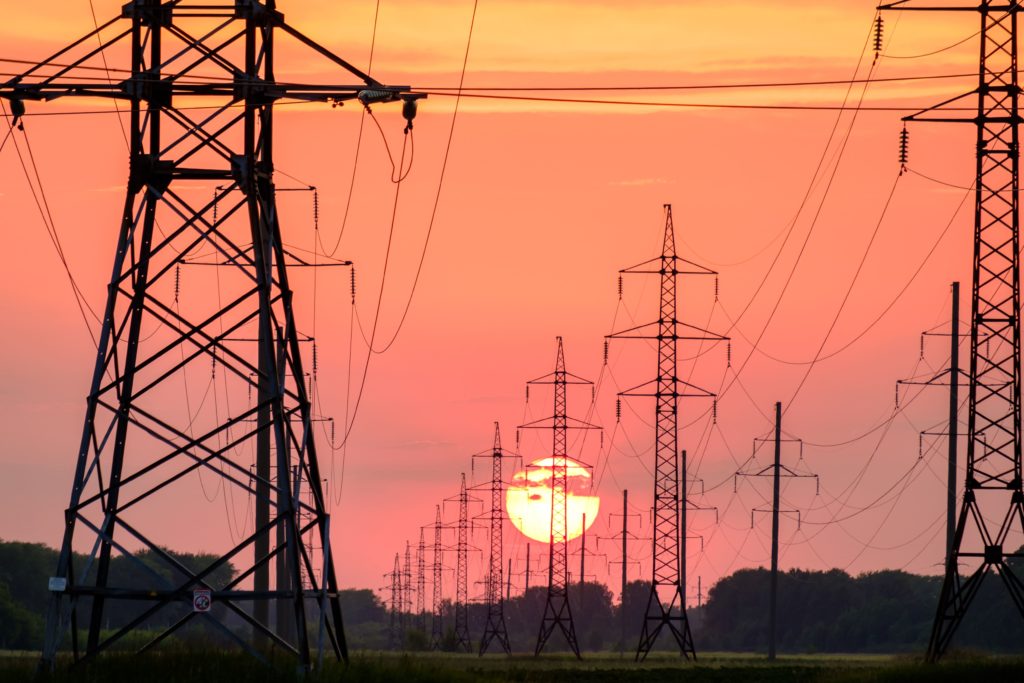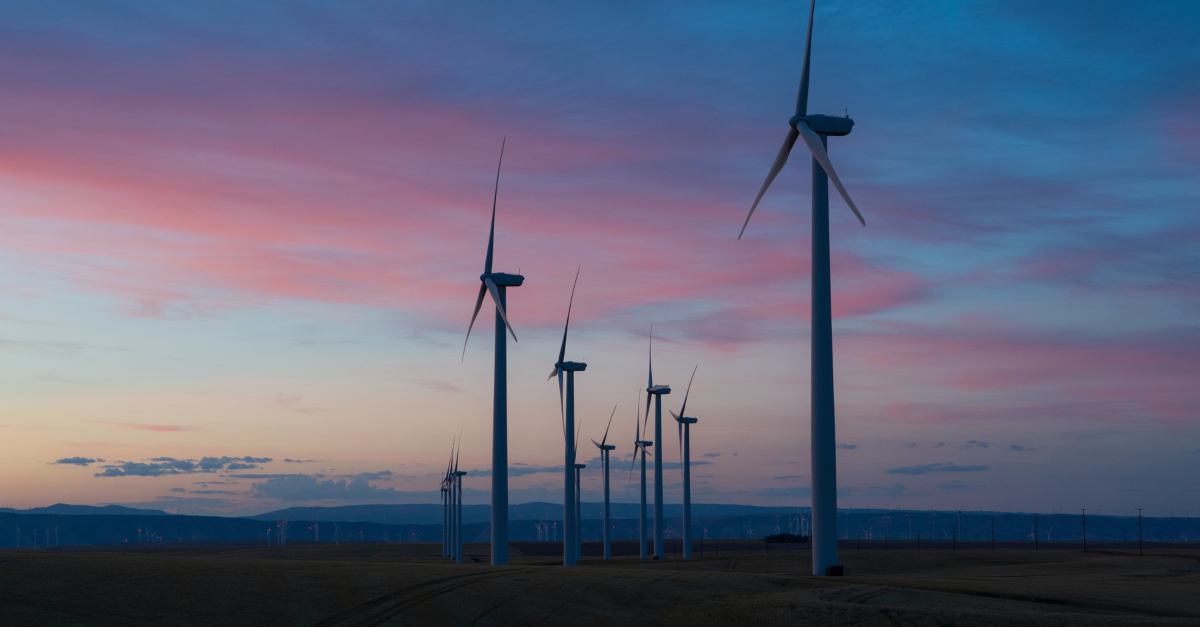How businesses can navigate the volatile energy market in 2023 and beyond
12 September 2022
Summer heatwaves and winter cold spells, geopolitical conflicts, and new laws and regulations affect electricity and natural gas prices every day. Like in the stock market, you have to be a dedicated expert and spend hours monitoring what’s happening in the market daily, if not hourly, to be able to make decisions that save you money and let you build strong energy strategies. In this article, we are diving into the energy market uncertainty that the whole world is facing today, its causes, and what your organization can do to navigate it.
What made the utility prices go up?
You must have noticed that over the past several years more and more places across Canada and US set record-breaking temperatures and have longer heatwaves. While it’s vital to remember how to deal with it personally–by staying hydrated and avoiding spending too much time outside–you also saw unexpected spikes in energy bills and wondered what you could do about them.
Here’s what happens: when it’s hot outside, you turn the AC on. Plus, all the equipment, be that a fridge at home or production machinery, works harder to keep the optimal temperature. The demand for electricity rises, and the pressure on the grid gets higher, affecting the production and supply cost of electricity that impacts your company via utility bills. This is an example of a short-term factor that affects electricity rates.
Another short-term factor is geopolitics. In 2022, the world is putting a lot of effort into moving away from Russian natural gas supplies, hence higher prices. How long they will stay on those record-breaking levels is still the question, but the chances of them going down are way lower than the probability of more increases.

All in all, there are three major factors which make energy costs go up, and when any two of them hit together, the market enters the phase of extremely high rates. This season, we are affected by severe weather fluctuations and supply shortages. The third major factor that we should monitor in the upcoming months is power plant shutdowns for maintenance.
Fear of recession and the energy market
Recession is a topical issue. Every expert in finances and economics has already expressed their professional opinion. With the oil and gas prices being as volatile as now, opinions about whether we’re going into another recession or not differ from one expert to another.
On the one hand, some market experts claim that it’s too early to call it a recession and say that even if it’s in the cards, it’ll be easy for everyone to bounce back. On the other hand, a less positive prognosis also exists.
Whether the recession hits or not, the real thing affecting the markets right now is the possibility, the fear of it, and here’s why. In the second half of 2022, energy demand is and will remain higher than supply. What’s needed to stabilize the economy is new supply projects that normally require steady investments. The fear of recession causes investors to pull the plug on such projects, which are already behind the pre-pandemic levels.

All in all, there are multiple factors to take into consideration before stating with any degree of certainty whether a recession is the most likely outcome for North America. What matters for business planning and forecasting is how to future-proof your business with some easily actionable items.
Now, what can you do about it? Of course, it wouldn’t make sense to suggest turning the cooling systems off when it’s scorching outside. However, reducing your demand can definitely lower the price if your current energy product doesn’t penalize you for reducing the demand. Besides, none of us have the crystal ball that says when the next heat wave will hit, or another conflict will strike. That means that the best thing you can do is understand how you’ve been using energy up until this moment, look into the current trends, and plan how flexible you need to be in your budget planning in the upcoming months and years.
Risk management tips: energy edition
Scheider Electric, a global company, specializing n energy management and automation in more than 100 countries, has conducted a study about how energy volatility is impacting organizations. While the majority of participants (92%) were affected, only half of the organizations mentioned working on risk management when it comes to energy procurement. The most popular energy tools these organizations consider are renewable energy projects, energy efficiency and optimization, and microgrids. The survey also states that now more than ever, companies are looking for advice from energy consultants since there are too many moving parts that must be taken into account to make the best energy decision for a business.

Before diving deep into renewable energy and complex, long-term optimization projects, many companies overlook the easiest step to make – reviewing their current energy setup. Here are some questions to ask yourself or the person who manages utilities in your company:
- Are we operating in a deregulated energy market?
- What’s the rate in our contract? Is it fixed or indexed? If both, is it the best proportion for the company?
- If the current market rate is much higher and the contract is ending soon, how do we transition? Should we lock the price now?
- Is there government support available?
- How to budget for the next year? Five years?
- What to do if my energy retailer goes bankrupt?
- Is there a way to use less energy and optimize it?
Besides, your risk policy matters a lot. Before making any energy-related decisions, you need to know your company’s risk tolerance. The question to ask here is, “What cashflow swing can we tolerate?” In recent months we’ve seen bills going from $50,000 to $200,000 because of the market volatility, and not all of the companies who experienced this swing were ready to deal with it.
Another strategy might be looking into different pricing terms and start dates. If you’re not ready to commit to a contract right now because you hope that the market will drop, you can look at expected rates in April or May and start from there.
Getting ready for the winter now
The first days of September, no matter how warm and sunny they are, always serve as a reminder that Fall is just around the corner. Although most of us try to fit in as many summer activities as possible, be that picnics or hiking, it’s better for your business if you start getting ready for the winter now.
Right now, the energy market is trading higher than in 2008. There are two options only: either the utility costs keep increasing, or they drop. Unfortunately, they’re more likely to keep growing, and we’ll see that reflected in bills once the heating season starts. So it’s better to reconsider the energy program now.
You can control your exposure to the market with layered programs; for example, you can lock the current rate for 50% of your energy volume and keep the other half at an indexed rate. Remember that for such types of programs, you need to meet certain criteria, such as total yearly consumption.
All in all, the energy market will remain volatile. No one could predict that a year ago, but it’s vital for your organization to find the best way to navigate the current market situation now. Our energy experts can develop a tailored energy strategy that meets your specific business needs today and for the years to come. Contact us today, and we’ll take care of your energy management.
Others articles you might like
Energy consultants: heroes for your business and the environment
Making critical decisions for your business and deciding where to invest your money to improve your bottom line can take, well… a lot of ene...
9 August 2022What opportunities are hidden in green energy and how you can grasp them
The topic of green energy sets off a chain reaction of questions. Is it more expensive than “regular” energy?...
2 August 2022Discover the basics of energy market cycles, where we are headed, and what it means to your business
It seems that governments and corporations have universally accepted the goal of eliminating greenhouse gas (...
29 June 2022



